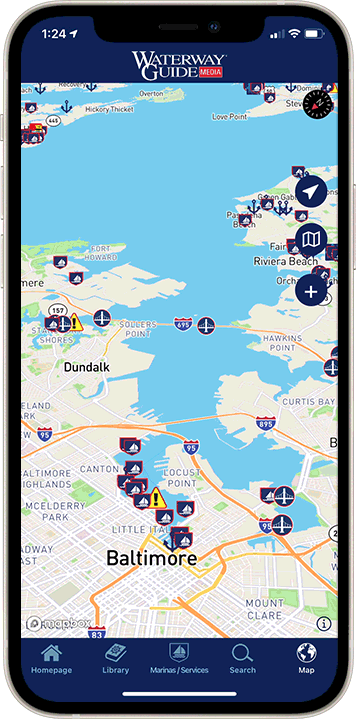
Over the years, we've written quite a bit about GPS technology. Interestingly, other than the first column, the other 5 columns were about what could go wrong and what you could do about it. Why is that?
Well, as the late Arthur C. Clarke once observed, "Technology sufficiently advanced is indistinguishable from magic." Well, when the magic stops, you need to understand how to cope. This column is about that.
Solar Flares
It may be hard to believe but 99.86% of all the mass in our entire Solar System is one object alone – the Sun. So, when things happen there, it is probably going to have an impact, particularly here if only because of our high-technology-based reliance on radio waves of all usable frequencies.
On balance, the average day on the surface of the Sun clocks in at 10,000 degrees Fahrenheit. That, as we will learn, is a good day.
Solar flares are, essentially, an explosion in the Sun's atmosphere. When that happens, the surrounding solar atmosphere gets heated up to over 20,000,000 degrees Fahrenheit. That, as the saying goes, is a bad day.

This rips the surrounding atoms to pieces and sends electrons, protons and heavier ions shooting into space at the speed of light. This wave of atomic carnage spans the entire electromagnetic spectrum at all wavelengths, from simple radio waves to extremely high-energy gamma waves. This, as scientists are fond of saying, is the problem.
Solar Flare Cycles
As you may know, the Sun has many cycles to it, and one of them is the roughly 11-year solar flare cycle. We are just past the peak of the current cycle (2021-2022) but scientists have sent out bulletins in the past few weeks about a build-up of solar flares. Ten to twelve years ago, GPS technology was expensive and far less common than it is today.
Now, GPS is virtually everywhere – boats, cars, integrated into EPIRBs, pocket-sized for hikers, etc. Now, as the Fates would have it, we know that based on recent studies that GPS receivers are unexpectedly vulnerable to bursts of radio noise produced by solar flares. When we were at the last peak, GPS was just much less common, and the problems were thus minor in relative scope and attention.
The intense bursts of radio noise, caused by the charged particles shooting out from the solar flare at the speed of light, appear to peak in the 1.2 and 1.6 gigahertz bands used by GPS. Normally, radio noise in these bands is very low, so receivers can easily pick up weak signals from orbiting satellites.
This may also be a problem for aircraft navigation as the FAA uses reference GPS receivers on the ground for air traffic control. Although planes can and do fly without GPS, outages will force the FAA to increase the distance and timing between aircraft, delaying flights.
Some may ask "What happens with your GPS data?" If you mean the track line (there is usually an option to turn that on or off with the GPS device's settings) that records where the device, and hence you and the boat, have gone.
The short answer is nowhere. If you have "track line turned on", you'll see what are sometimes called "bread crumbs" on your GPS screen - for every voyage you've been on since you turned the device on. (Gets kind of crowded after a while.) If you don't have your track line on, no breadcrumbs are painted on the GPS screen.
There are vendors who do track GPS position and create a variety of reports for, typically, the employer of a trucking or taxi company so they can verify where cargo or people are at any point in time. But that requires a monthly subscription and that you carry, in addition to your GPS, their device aboard.
GPS is also used to synchronize power grids and cell phone networks. And, of course, we use GPS in our boats (and cars.) We could increase the strength of GPS signals but that would require redesigning GPS satellite hardware and software. I think solving the "Y2K" software problem was easier. Didn't we turn off LORAN a few years ago?
If you have any questions on this column or are interested in being part of USCG Forces, email me at [email protected] or go directly to the US Coast Guard Auxiliary "Flotilla Finder" at http://www.cgaux.org/units.php and we will help you "get in this thing."











